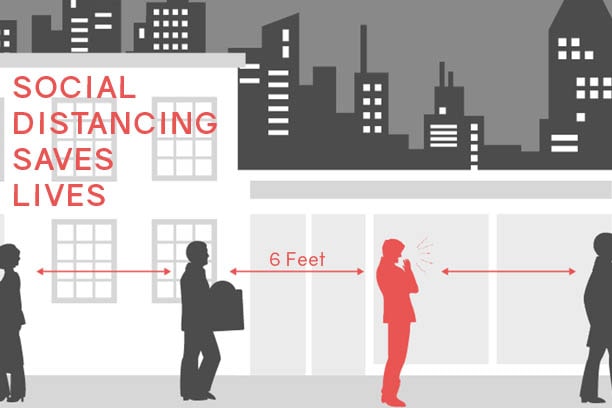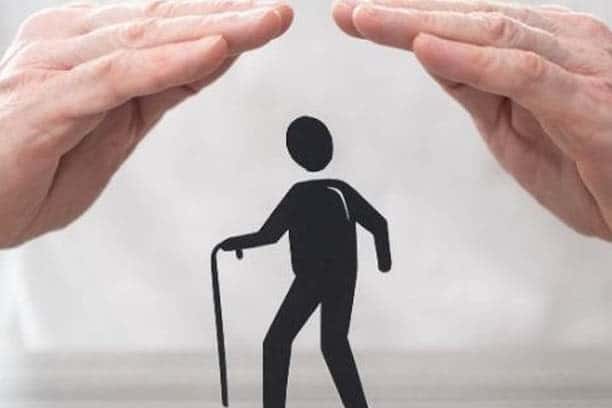Coronavirus Minimising Infection Risk
- July 10, 2020
- Posted by: Informed Healthcare Solutions
- Category: Client Wellness Newsletters

Coronavirus Minimising Infection Risk – COVID-19
Coronavirus Minimising Infection Risk: Distance, Dose & Dispersion
DISTANCE
The further away you are from some-one who is infected, the less likely you are to be infected by them or breathe in particles that they have breathed out.
DOSE
To become infected you need to have contact with a minimum dose, which takes time and exposure to people with the virus. The LONGER you are exposed to an infectious person, the MORE PEOPLE you are exposed to, and the FEWER BARRIERS between you, the more likely you are to be infected with the virus.
DISPERSION
The movement of air makes a big difference because smaller particles hang around in the air. The particles disperse quickly if you are outside. Sunlight also breaks down the virus. Small enclosed and crowded spaces are high risk.
WHAT CAN WE DO?
Physical Distance:
This is the major defense against infection. Go outdoors, open windows as much as possible. The movement of air is important, so ensure homes and work places are naturally well ventilated. Socialise outside preferably, keeping a 2 metre distance.
Wear a Mask:
There is now lots of evidence that wearing a mask is effective in communities. If everyone wears a mask, the amount of virus in the air is reduced, and all protect each other. Masks are not a substitute for ventilation and distancing.
Wash your hands frequently:
The virus is very fragile and washing your hands with soap for 20 seconds kills the virus. Clean commonly touched surfaces and workspaces frequently. These include door handles, lift buttons and credit card machines.
If a staff member is found to be positive, wipe down surfaces with soap and water, followed by bleach, leaving the venue well ventilated for 24 hours if possible. Once surfaces have been cleaned, dried and disinfected, and the spaces well ventilated, work can continue.
Air Conditioning systems need to be assessed:
Systems that recirculate air are very risky as you are recycling other people’s air. Simply opening windows, and using a fan is very effective in increasing the movement of air.
Shops should limit the numbers of customers allowed in:
Head Offices should stagger working hours and shifts ensuring that the same people are not working at the same time, or on the same day.
Breaks should be staggered, and tea break rooms should be well ventilated and times staggered to reduce the number of people in them at any one time.
Social time with family and friends needs to be carefully monitored:
If you are indoors with people who do not live in the same house, you greatly increase the risk of spread to your family.
A high percentage of people are infected at home, and spread the infection at work. Consider being outside when meeting people who do not live in your house, or protect vulnerable members of your family by wearing a mask when with them.
Take personal risk factors into account
If a member of your family is older, or has a co-morbidity consider some-one less vulnerable to do the shopping, and vulnerable people should avoid public transport and large gatherings if they can.
Protect others if you have any of the known symptoms. Stay at home and encourage your workers to stay at home.
If you need to isolate try to spend time in a room on your own, be outdoors at home if you can.
Try to avoid communal spaces like the bathroom or kitchen, and if you cannot then ensure that you wipe down surfaces, keep windows open and wear a mask.
Have a clear communication strategy on how to manage risk at work.
Avoid judging and stigmatising people who have been diagnosed as Covid-19 positive. Be kind and supportive.
Take it seriously, the threat is real and active. If we all act together, do the right thing and support each other, we can reduce the spread, reduce deaths and lessen the pressure on hospitals.
MINIMISING RISK IS IN OUR HANDS
Medical Aid Quotes | Gap Cover Quotes | Life Insurance | Vitality
Disclaimer: The information and opinions in this document have been recorded and arrived at in good faith and from sources believed to be reliable, but no representation or warranty, expressed or implied, is made to their accuracy, completeness or correctness. The information is provided for information purposes only and should not be construed as the rendering of advice. Informed Healthcare Solutions accordingly accepts no liability whatsoever for any direct, indirect or consequential loss arising from the use of this document or its contents. IHS is a licensed financial service provider: FSP # 12239
Coronavirus Minimising Infection Risk
